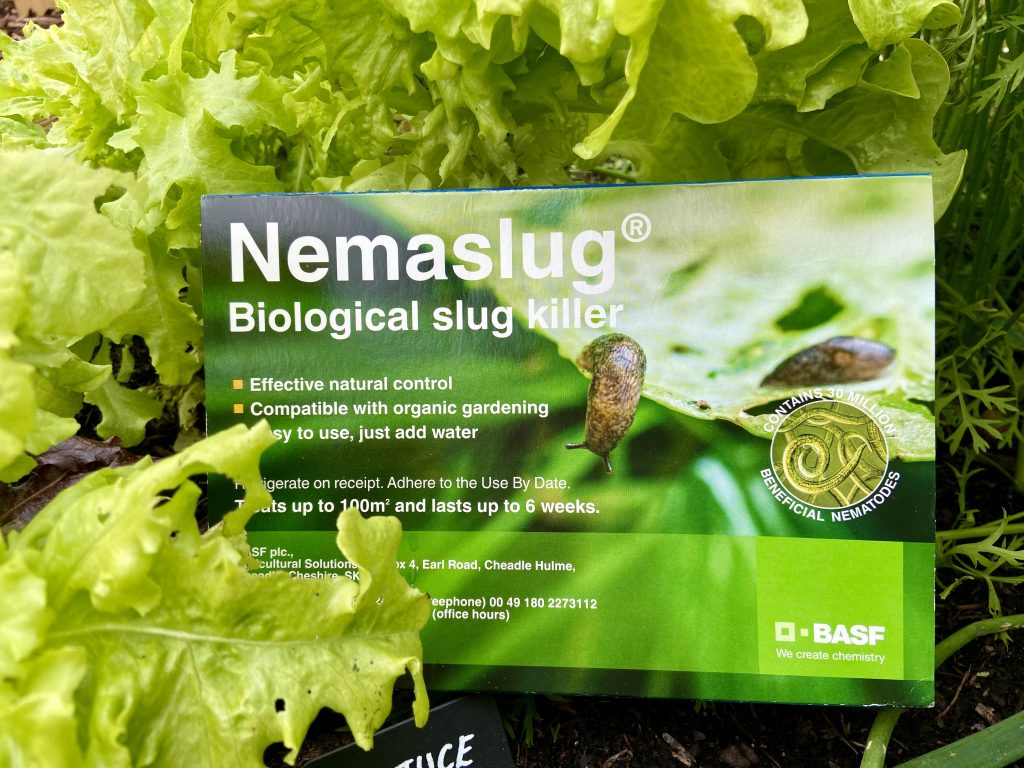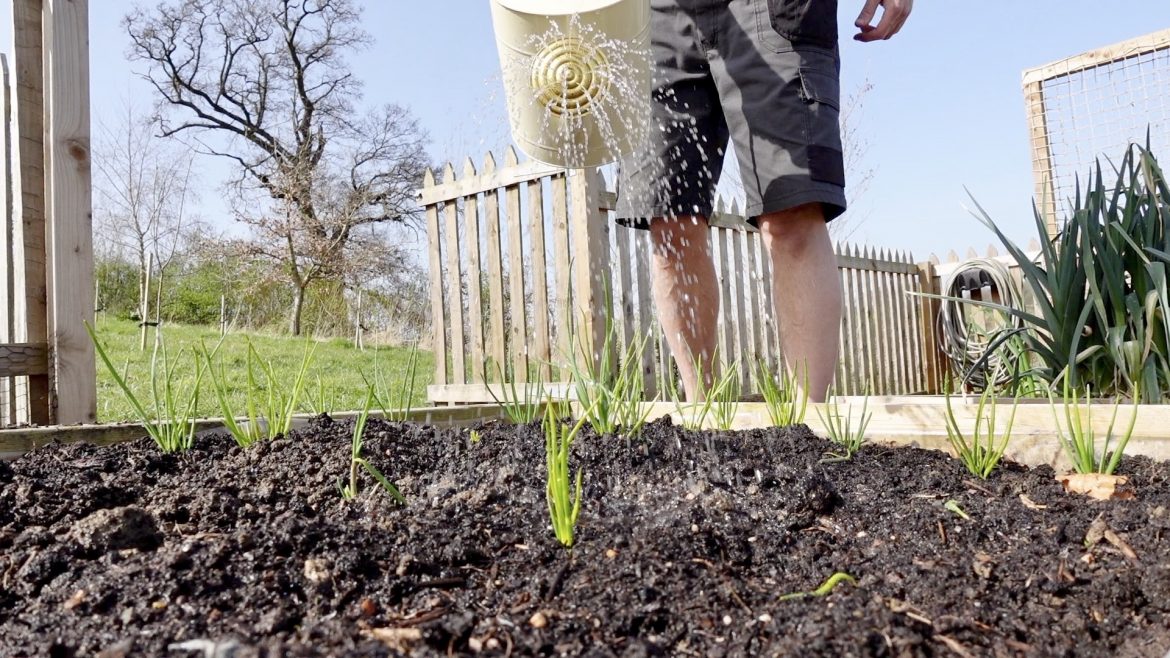In April, I posted my concerns about slugs and snails, but nothing could have prepared me for what ensued in June; fighting slugs has undeniably become our number one priority in the veg garden.
The slugs arrive in vast and unrelenting numbers and devastate leafy crops like lettuce, spinach and kale overnight. It’s not surprising that there are more home remedies for fighting slugs than any other gardening foe.
I’m also learning very quickly that there isn’t a single solution to deal with slugs, and you need an assortment of strategies.
So far we’ve used copper rings, set traps and picked them off by hand, and we have now resorted to a nematode approach using a product called Nemaslug.
Nematodes are microscopic, parasitic worms that release bacteria into their targeted hosts, which kills them. Nematodes are a natural way of fighting off slugs and do not adversely affect or harm any other creatures or animals.
The nematodes in Nemaslug (Phasmarhabditis hermaphrodita) arrive in a paste that you need to dissolve in water to make a solution and then apply to soil around plants that have been targeted by slugs. We’ve shown and demonstrated all of this in the video above.
It’s now a waiting game, and over the next fortnight we are going to see whether the nematodes have helped reduced the number of slugs in our veg garden. We will let you know whether the nematodes have been a success.

Additional information about slugs
Slugs are classified as mollusks and there are 80,000 species on earth that reside on land and in water.
Slugs are essentially snails without shells and get around using their muscular foot that glides on mucus slime. When this mucus dries it leaves a silvery telltale sign that we’re all familiar with.
Slugs are capable of laying 500 eggs in batches of 30-80. The peak egg laying windows occur in March-April and September-October.
They do most of their damage to young seedlings and low-growing fruits, such as strawberries. They can devastate entire veg gardens if left unchecked.
In an orchard, snails and slugs are beneficial because they eat fallen rotting fruit, but they will climb a tree for fresh fruit as well. Our orchard, for the moment, has not been affected by slugs.
